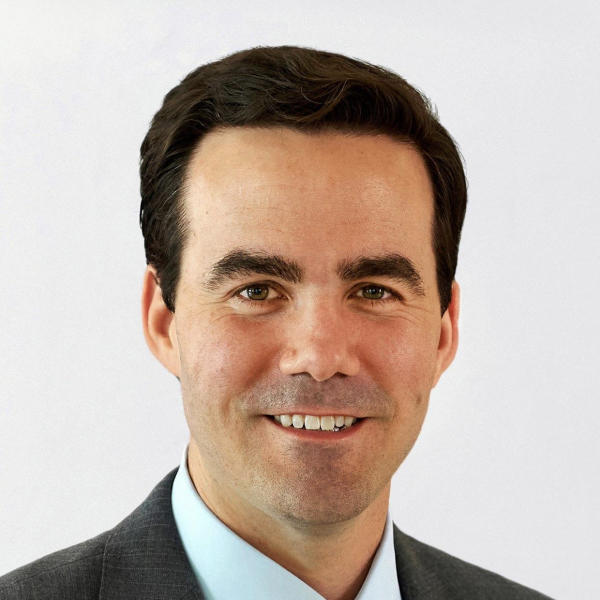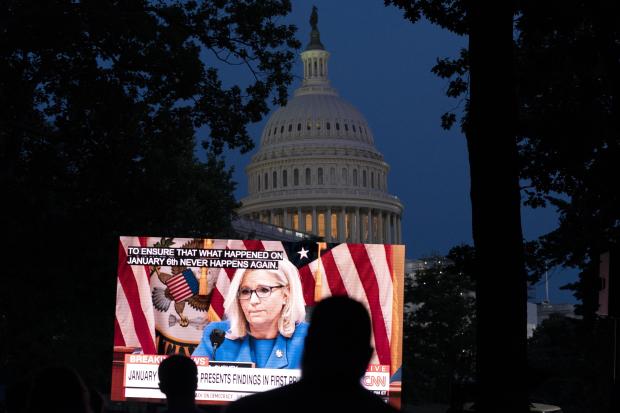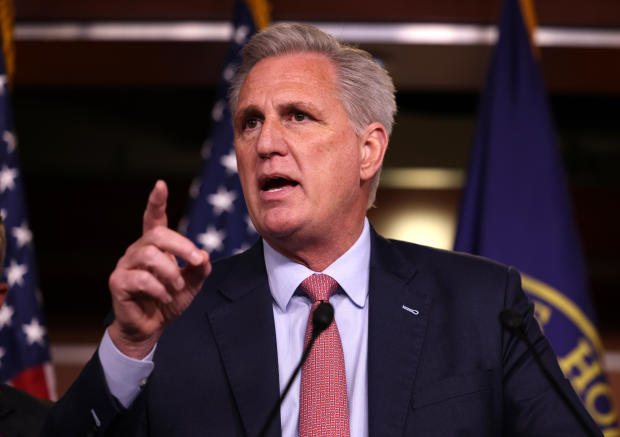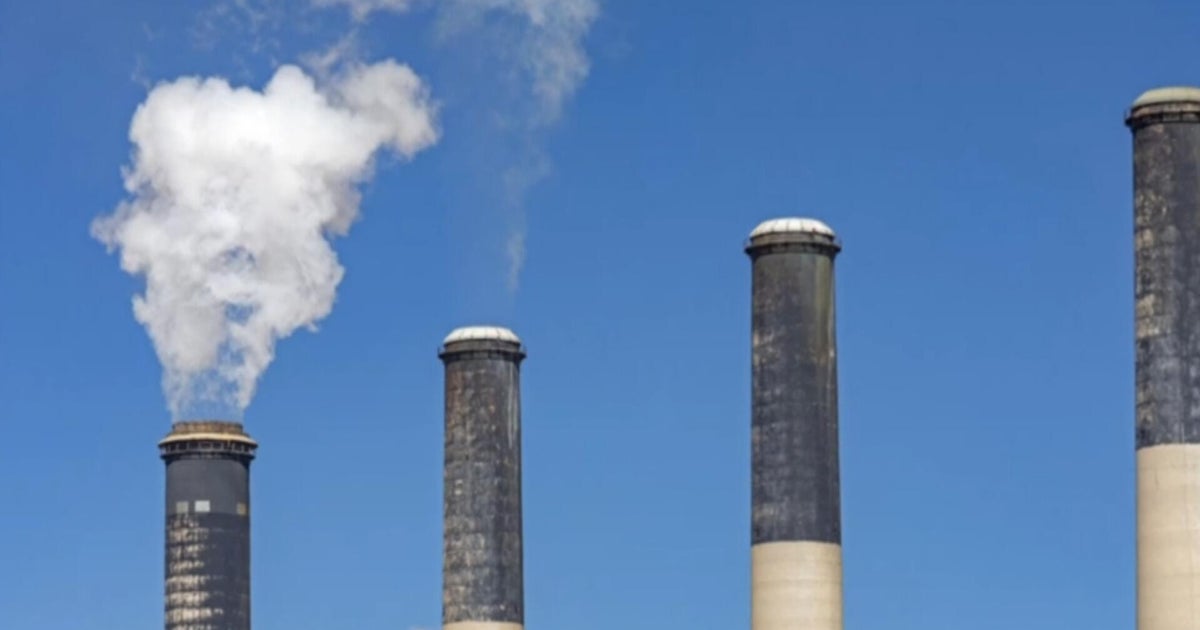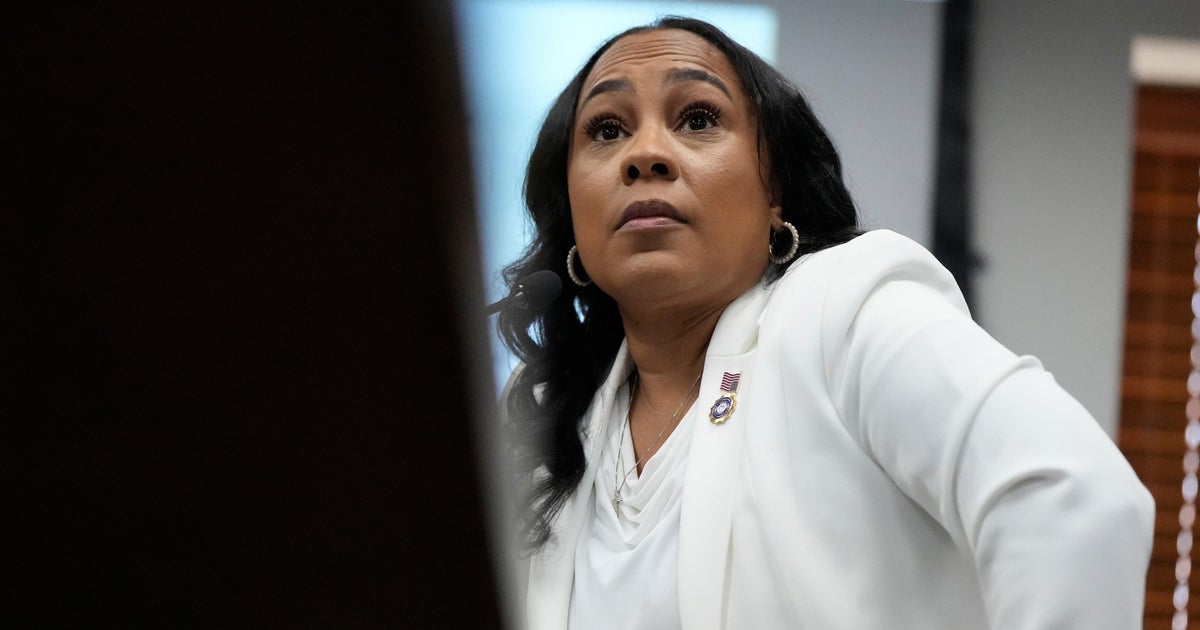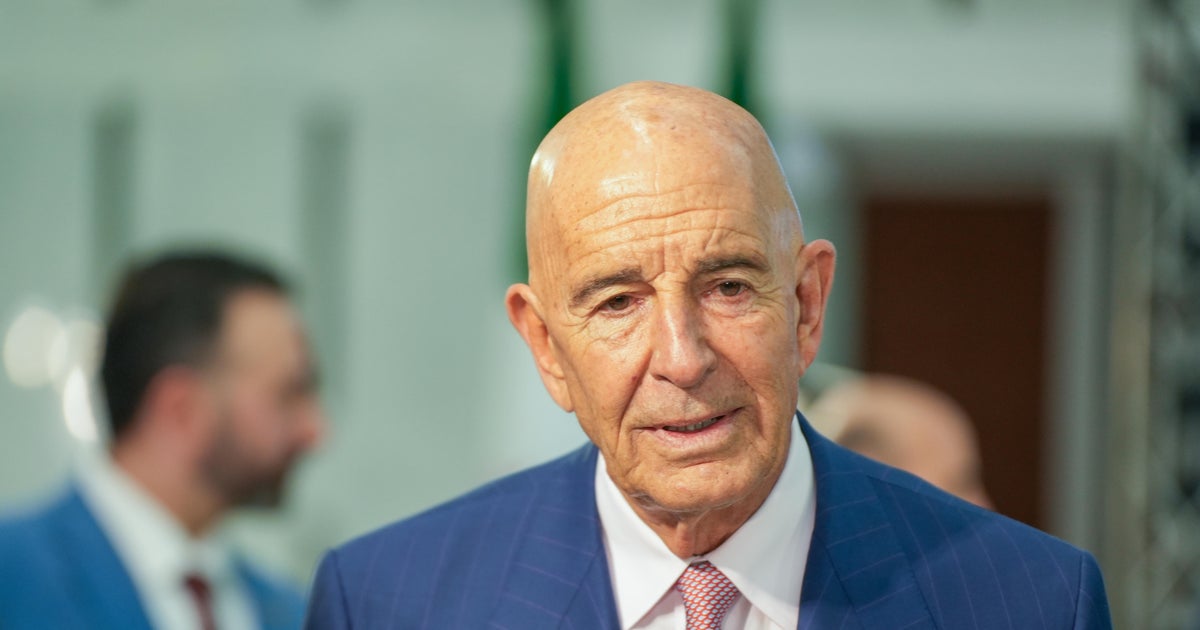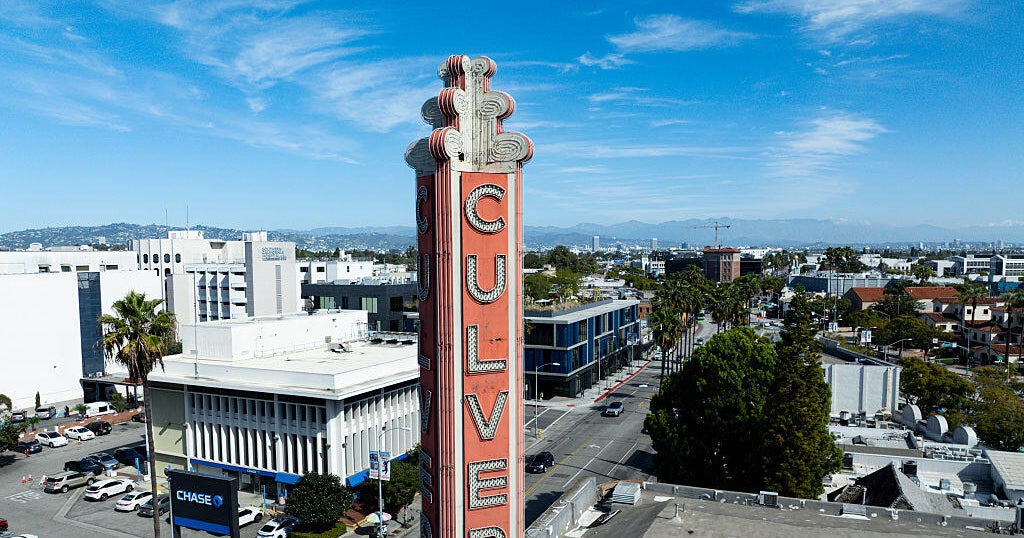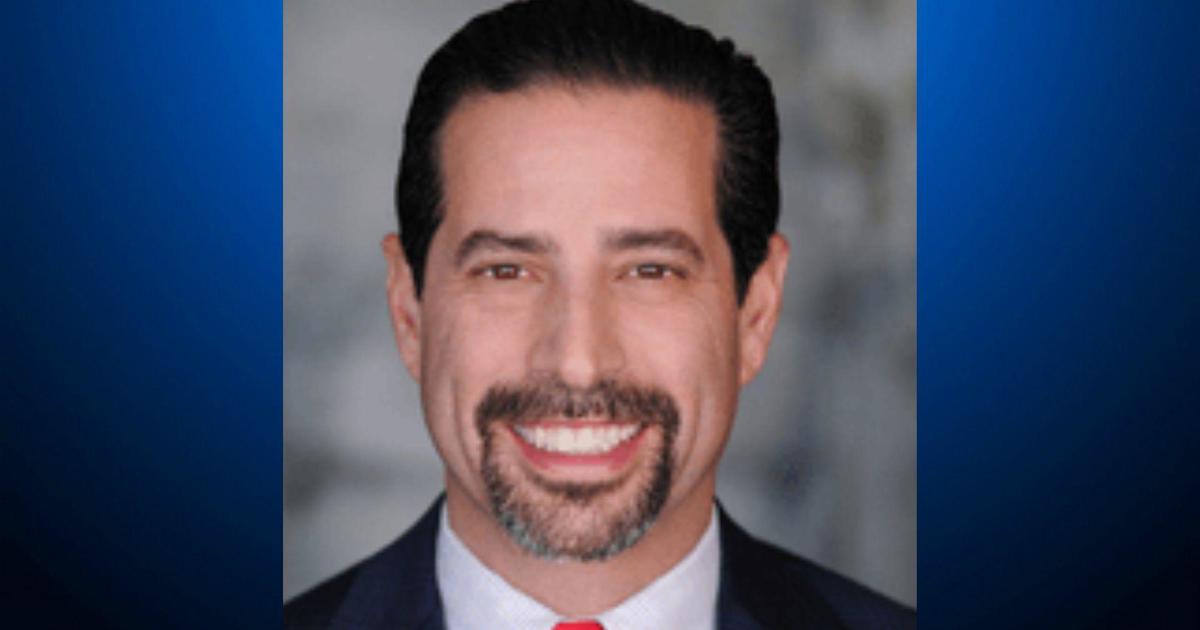House Jan. 6 committee opens public hearing with never-before-seen video and officer testimony: "It was a war scene"
The House select committee investigating the Jan. 6 attack on the U.S. Capitol kicked off the first in a series of public hearings with never-before-seen footage from the attack that day as well as clips of videotaped testimony from some of people in former President Donald Trump's orbit, including his daughter Ivanka Trump.
Committee chair Rep. Bennie Thompson and vice chair Rep. Liz Cheney in their extraordinary opening statements detailed how many Trump administration officials themselves did not believe the former president's baseless claims of a stolen election.
Former Attorney General William Barr, for example, told the Jan. 6 committee in his testimony that he told Trump his claims of a stolen election were "bullsh**." Ivanka Trump said she "trusted" that there was no fraud because she respected Barr.
Cheney and Thompson called the events a "conspiracy" — and noted how many people were involved. In fact, Cheney said there were Republican members of Congress who sought pardons for their actions on Jan. 6.
At times, from Cheney's opening statement, it appeared that Vice President Mike Pence acted as a shadow president – he was the person who called the National Guard, not Trump. And during the attack, Trump suggested the rioters had the right idea when they chanted they wanted to hang Pence.
Cheney had harsh words for her fellow Republicans who were involved and those who have fallen in line since the attack: "There will come a day when Donald Trump is gone but your dishonor will remain."
But the main theme of the hearing was detailing the chaos and violence of Jan. 6, 2021. Cheney said House Minority Leader Kevin McCarthy texted Trump family members and told them he was "scared" about what was happening.
Capitol Police officer Caroline Edwards, who sustained a traumatic brain injury that day, testified about her experience on Jan. 6, describing it as "carnage" and "chaos." In the footage that was shown of the attack, no one tried to help Edwards as she lost consciousness after being hit with a bike rack and striking her head on the stairs.
She said one memory that stuck out for her was when "I saw – I can just remember my breath catching in my throat, because what I saw was just a war scene. It was something like what I had seen out of the movies. I couldn't believe my eyes. There were officers on the ground, they were bleeding, they were throwing up … I saw friends with blood all on their faces. I was slipping in people's blood. I was catching people as they fell … it was carnage, it was chaos. I can't even describe what I saw. Never in my wildest dreams, did I think that as a police officer, as a law enforcement officer, I would find myself in the middle of a battle."
Documentary filmmaker Nick Quested, who was filming the Proud Boys the day of the attack, was the other witness who testified Thursday. He described how the Proud Boys began walking toward the Capitol at 10:30 a.m., before Trump had begun his speech. He described it as "much darker" than other days he had shadowed the group.
In a statement issued late Thursday night, Trump called the select committee members "political hacks" and accused them of not playing "any of the many positive witnesses and statements" during the hearing.
"Our Country is in such trouble!" the former president wrote.
The committee is planning several more hearings this month to continue laying out the findings of the 11-month investigation. The next one will be Monday, June 13 at 10 a.m., followed by June 15 and June 16.
Watch the full hearing
Officer Edwards describes Jan. 6: "It was carnage, it was chaos"
U.S. Capitol Police Officer Caroline Edwards testified about her experience on Jan. 6 and how she realized the crowd was getting out of control.
"I've worked, I can conservatively say, hundreds of civil disturbance events – I know when I'm being turned into a villain, and that's when I turned to my sergeant and said 'Sarge, I think we're going to need a few more people down here.'"
Edwards described how the rioters ripped back the barricades as officers tried desperately to hold them off. She described the bike rack being pushed into her, and "at that point, I blacked out but the back of my head clipped the concrete stairs behind me."
When she regained consciousness, she returned to duty.
"More people kept coming at us," Edwards said. "It just seemed like more and more people started coming on to the west front – they started overpowering us."
Edwards said she tried to help decontaminate people when she noticed Officer Brian Sicknick — a colleague who would die the following day. His face was red, she said, not pale as it would be if he had been pepper-sprayed.
Thompson asked her about one memory of that day. Edwards spoke of it as "a war scene."
"That time when I talked about falling behind MPD's line, I remember because I had been kind of shielded away because I was holding those stairs — so I wasn't able to see what was really going on over here," she said. "When I fell behind that line and I saw – I can just remember my breath catching in my throat, because what I saw was just a war scene. It was something like what I had seen out of the movies. I couldn't believe my eyes. There were officers on the ground, they were bleeding, they were throwing up … I saw friends with blood all on their faces. I was slipping in people's blood. I was catching people as they fell … it was carnage, it was chaos. I can't even describe what I saw. Never in my wildest dreams, did I think that as a police officer, as a law enforcement officer, I would find myself in the middle of a battle."
Documentarian says Proud Boys were marching toward the Capitol before Trump's speech even began
Filmmaker and documentarian Nick Quested told the committee he was "confused" that a couple hundred Proud Boys members were marching in the direction of the Capitol before Trump even began speaking.
"I was confused to an extent why we were walking away from the president's speech because that's what I felt we were there to cover," Quested said.
Quested said that as they neared the Capitol, he saw very few police officers. The atmosphere then was "much darker" than previous days he had covered the Proud Boys, Quested said.
Officer Edwards said "never" had her patriotism been called into question before Jan. 6
U.S. Capitol Police Officer Caroline Edwards recalled how her patriotism was called into question on Jan. 6, 2021, and in the days after.
"I was called a lot of things on January 6, 2021, and the days thereafter," she said, including "Nancy Pelosi's dog," a "traitor," a "hero," and a "villain."
"In actuality, I was none of those things. I was an American," she said.
"I had been called names before, but never had my patriotism or duty been called into question," Edwards said.
Edwards still hasn't been able to return to her regular duties prior to Jan. 6, 2021, after she was injured by rioters.
Cheney says Trump made no calls to National Guard or law enforcement. "Vice President Pence did each of those things."
Cheney claimed Trump made no calls to any element of the U.S. government to direct law enforcement to protect the Capitol, including to the National Guard. Instead, Vice President Mike Pence made those calls, Cheney said.
"Not only did President Trump refuse to tell the mob to leave the Capitol, he placed no call to any element of the United States government to instruct that the Capitol be defended," Cheney said. "He did not call his secretary of defense on January 6. He did not talk to his attorney general. He did not talk to the Department of Homeland Security. President Trump gave no order to deploy the National Guard that day. And he made no effort to work with the Department of Justice to coordinate and deploy law enforcement assets. Vice President Pence did each of those things."
Cheney: "There will come a day when Donald Trump is gone, but your dishonor will remain"
Vice Chair Liz Cheney, who was ousted from Republican Party leadership over her vocal and repeated criticism of Trump and insistence that the election was not stolen, had a message for the Republicans who still defend the president and downplay the assault on the Capitol.
"Tonight, I say this to my Republican colleagues who are defending the indefensible. There will be a day when Donald Trump is gone. But your dishonor will remain," she said.
Committee plays some never-before-seen footage of Capitol assault
The committee played some footage that hasn't been previously released of rioters breaching the Capitol, and officers bracing for the assault as they sought to protect members of Congress.
The video, which includes violence and explicit language, can be seen below:
The video included a brief interview with one of the men who breached the Capitol. The man was asked what he was prepared to do.
"Whatever it takes. I'll lay my life down, if it takes," the man said.
Cheney says public will hear about Trump Cabinet members discussing possibility of invoking 25th Amendment
Committee Vice Chair Liz Cheney said the American public will hear about members of Trump's Cabinet discussing the "possibility of invoking the 25th Amendment." The 25th Amendment provides the Cabinet a path to replace the president.
Former Trump Education Secretary Betsy DeVos, in a conversation with a USA Today columnist published Thursday, said there were "more than a few people" in the administration having conversations about potentially invoking the 25th Amendment. DeVos resigned from the Trump administration on Jan. 7, the day after the attack.
Cheney says McCarthy was "scared" and called Trump's family members on Jan. 6
Cheney said House Minority Leader Kevin McCarthy was "scared" enough to call members of Trump's family on Jan. 6.
"You will hear that leaders on Capitol Hill begged the president for help, including Republican leader McCarthy who was quote, 'scared,' and called multiple members of President Trump's family, after he could not persuade the president himself."
Since then, McCarthy has downplayed Jan. 6, and said "everybody in the country" bears some responsibility for what happened that day.
Cheney says committee will lay out Trump's legal strategy to overturn election results
Cheney detailed the committee's plans to examine the legal strategy underpinning Trump's efforts to overturn the election results, specifically the work of conservative attorney John Eastman, a professor who crafted a plan for Pence to reject states' electoral votes.
The committee has subpoenaed thousands of Eastman's emails from his former employer, with a federal judge ordering their release to investigators in recent weeks.
Cheney said J. Michael Luttig, a former federal judge who advised Pence's team, will testify that Eastman "was wrong at every turn."
"You will see the email exchanges between Eastman and the vice president's counsel as the violent attack on Congress was underway," Cheney said. "[Pence counsel Greg] Jacob said this to Mr. Eastman: 'Thanks to your bullsh**, we are under siege.'"
Cheney highlighted several rulings from U.S. District Judge David Carter, the federal judge overseeing the dispute over the subpoena for Eastman's emails. In one ruling, Carter wrote that it was "more likely than not" that Trump attempted to obstruct Congress.
"If Dr. Eastman and President Trump's plan had worked, it would have permanently ended the peaceful transition of power, undermining American democracy and the Constitution," he wrote in March. "If the country does not commit to investigating and pursuing accountability for those responsible, the Court fears January 6 will repeat itself."
Pence chief of staff says VP was more loyal to Constitution than Trump
In recorded video testimony, Marc Short, Vice President Mike Pence's chief of staff, said Pence was ultimately more loyal to the Constitution than he was to President Trump amid pressure to overturn the Electoral College vote.
"I think the vice president was proud of his four years of service and he felt like much had been accomplished in those four years, and I think he was proud to have stood beside the president for all that had been done, but I think he ultimately knew his fidelity to the Constitution was his first and foremost oath and that is what he articulated publicly and that is what I think he felt," Short told investigators.
Cheney says Republican members of Congress sought pardons after Jan. 6
Vice Chairwoman Rep. Liz Cheney said one of her fellow Republicans, Rep. Scott Perry, sought a pardon from Trump after Jan. 6, 2021. But he wasn't the only one, she said. Perry rejected the committee's subpoena.
"Multiple other Republican congressmen also sought presidential pardons for their roles in attempting to overturn the 2020 election," she said.
Ivanka Trump says she believed then-Attorney General Bill Barr's analysis on election's integrity
In recorded video testimony, Trump's daughter and longtime White House aide Ivanka Trump said she accepted Bill Barr's analysis that Trump allies claims of mass voter fraud were inaccurate.
"I respect Attorney General Barr, so I accepted what he was saying," she said in the recorded testimony.
Lead data aide told Trump he would lose election, aide says
According to on-camera testimony, Trump aide Jason Miller, who was in the Oval Office at the time, said the campaign's lead data analyst told Trump he would lose.
"I remember he delivered to the president — in pretty blunt terms, that he was going to lose," Miller said.
That was based on county-by-county and state-by-state results, Miller confirmed.
Cheney: Trump wanted Mike Pence to be hanged
Committe vice chairwoman Rep. Liz Cheney said in her opening statement that more than a dozen former White House staffers will show that Trump wanted Vice President Mike Pence to be hanged. Those staffers, Cheney said, were in the West Wing with Trump on Jan. 6.
"You will hear testimony that, 'The president did not really want to put anything out,' calling off the riot or asking his supporters to leave. You will hear that President Trump was yelling and, 'really angry' at advisers who told him he needed to be doing something more. And aware of the rioters' chants to hang Mike Pence, the president responded with this sentiment, 'maybe our supporters have the right idea.' Mike Pence, 'deserves it.'"
Cheney said testimony will also show that Trump refused for hours to instruct his supporters to stand down and leave the Capitol.
Barr says in videotaped testimony: "I told the president it was bullsh**. I didn't want to be a part of it."
Thompson played a video excerpt of former Attorney General Bill Barr's interview by the House Jan. 6 committee. Barr said he told Trump his claims of a stolen election were "bullsh**."
"I didn't want to be a part of it," he said.
Barr said he couldn't live in a world where an incumbent administration stays in power based on "unsupported by specific evidence that there was fraud in the election."
Thompson says "Trump was at the center of this conspiracy"
Chairman Bennie Thompson did not mince words, squarely placing responsibility for Jan. 6 at the feet of former President Trump.
"Donald Trump was at the center of this conspiracy," Thompson said.
"It boils down to this," he continued. "January 6 was the culmination of an attempted coup. A brazen attempt, as one rioter put it shortly after January 6, to overthrow the government. The violence was no accident."
Thompson said Trump broke the long-held tradition of the peaceful transfer of power. He said that even President Abraham Lincoln during the Civil War acknowledged he had a responsibility to accept the election results if he lost in 1864.
"Donald Trump lost the presidential election in 2020. The American people voted him out of office," Thompson said.
But Trump didn't stop there, Thompson said.
"But for Donald Trump, that was only the beginning of what became a sprawling, multi-step conspiracy" aimed at overturning the election, Thompson said.
Over the next few weeks, the committee will remind Americans what happened that day, but also that democracy is still in danger, Thompson suggested.
"January 6 and the lives that led to insurrection have put two-and-a-half centuries of constitutional democracy at risk. The world is watching what we do here," he said.
Sandra Garza, partner of late Officer Brian Sicknick, says "justice for me for Brian would be having Donald Trump in prison"
Sandra Garza, the partner of late Officer Brian Sicknick, who died on Jan. 7, 2021, after engaging with rioters, has arrived at the hearing. She was accompanied by members of the Capitol police, including Capitol police officer Harry Dunn, as well as retired Metropolitan PD officer Michael Fanone.
"I hope we can get some, you know, clarification for the public on how Trump is responsible for instigating that event that day," Garza told reporters. "We know that in our hearts, and I just hope the public gets to see that live and in color literally."
When asked if she felt this was justice for Sicknick, she said, "I hope so."
"Justice for me for Brian would be having Donald Trump in prison, but it doesn't seem like that ever happens," Garza said. "The man seems to escape justice time and time again. But maybe today would change that. That would be a wonderful thing. I don't know. We'll see."
Witness Caroline Edwards says "good to go" ahead of hearing
Capitol police officer Caroline Edwards, who will testify Thursday night, has arrived at the hearing. When asked if she's ready, she replied, "Yeah, good to go."
Committee chair Bennie Thompson to open by saying "we can't sweep what happened under the rug"
The committee's chairman, Rep. Bennie Thompson, will deliver an opening statement insisting the attack on the Capitol was an "attempt to undermine the will of the people."
"We can't sweep what happened under the rug," Thompson will say, according to his prepared statement. "The American people deserve answers. So I come before you this evening not as a Democrat, but as an American who swore an oath to defend the Constitution. The Constitution doesn't protect just Democrats or just Republicans. It protects all of us: 'We the People.' And this scheme was an attempt to undermine the will of the people."
He will also say the hearings aren't intended to just look backwards, adding that democracy "remains in danger."
"January 6th and the lies that led to insurrection have put two and a half centuries of constitutional democracy at risk," he'll say. "The world is watching what we do here. America has long been expected to be a shining city on a hill. A beacon of hope and freedom."
Two witnesses are set to testify Thursday night
The select committee announced Tuesday evening it planned to call two witnesses on Thursday: Nick Quested, a filmmaker who followed the Proud Boys on Jan. 6, and Capitol Police officer Caroline Edwards, the first law enforcement officer injured by rioters storming the Capitol grounds. Edwards suffered a traumatic brain injury and has not been able to return to work since the attack, according to the committee.
Quested will likely face questions about the footage he shot both on the days leading up to Jan. 6 and on the day of the attack, when he followed a group of Proud Boys as they stormed the Capitol. The leader and four members of that far-right group are facing charges of seditious conspiracy.
Jan. 6 committee expected to discuss the pressure on Mike Pence
Much of what happened before and after the January 6 attack on the U.S. Capitol was focused on then-Vice President Mike Pence. First came the pressure campaign to overturn the Electoral College vote count, then came the threats to his life. CBS News congressional correspondent Scott MacFarlane walks us through it in the video below.
Some witnesses confirm upcoming appearances
Georgia Secretary of State Brad Raffensperger will appear before the House Jan. 6 committee in one of the upcoming hearings, a person familiar has confirmed to CBS News.
J. Michael Luttig, a former judge on the U.S. Court of Appeals for the Fourth Circuit and a leading conservative jurist who advised then-Vice President Mike Pence, confirmed to CBS News that he has accepted an invitation to appear before the committee next week. "It will be an honor to testify before the January 6th committee," he told CBS News.
Greg Jacob, who served as chief counsel to Pence, and Georgia Secretary of State Brad Raffensperger will also appear at subsequent hearings.
– Robert Costa and Major Garrett
Jan. 6 hearing could reveal explosive new evidence
Committee aides have promised explosive new evidence that will show the attack was a coordinated and planned effort to overturn the 2020 presidential election. U.S. Capitol Police officer Caroline Edwards and documentary filmmaker Nick Quested will be the first to testify. CBS News congressional correspondent Nikole Killion has details in the video above.
Biden says "a lot of Americans are going to be seeing for the first time some of the detail that occurred"
Ahead of a meeting with Canadian Prime Minister Justin Trudeau at the Summit of the Americas in Los Angeles on Thursday, Mr. Biden noted that some Americans will be hearing details of the Jan. 6 attack for the first time.
"And as I said when it was occurring and subsequent, I think it was a clear, flagrant violation of the Constitution," Mr. Biden said. "I think these guys and women broke the law. … There's a lot of questions — who's responsible, who's involved. I'm not going to make a judgment on that, but I just want you to know that we're going to probably be, a lot of Americans are going to be seeing for the first time some of the detail that occurred."
Widows of Capitol officers who died by suicide will be in audience
The widows of Capitol police officers Howard Liebengood and Jeff Smith, who both died by suicide following the Capitol attack, will be in attendance at Thursday night's hearing. Four officers who responded on Jan. 6 died by suicide within seven months of the attack.
Jeff Smith's widow, Erin Smith, told CBS News in an exclusive interview that she thought the "physical attack on him changed him." Body camera footage obtained by CBS News appears to show that he was the target of multiple assaults on Jan. 6, at least once inside the Capitol and then again a few hours later, outside at the west front of the Capitol.
She petitioned Washington, D.C., to consider the possibility that Jeff had suffered a brain injury during the attack and that his death occurred in the line of duty. "If he didn't go to work that day, he'd still be here," she said.
In March 2022, she received the official recognition that the Jan. 6 injury "was the sole and direct cause his death."
Serena Liebengood, the widow of Officer Howard Liebengood, wrote In a letter to Virginia lawmaker Rep. Jennifer Wexton that her husband was ordered to remain on duty "practically around the clock" for three days following the insurrection and "was severely sleep deprived" before his death by suicide on Jan. 9.
"The Liebengood family wants Howie's death to not have been in vain," she wrote, according to the letter obtained by CBS News. She called on the U.S. Capitol Police to designate her husband's death as "in the line of duty," and wrote "the UCSP must be held accountable for its actions and structural reforms instituted" to address the mental health of its officers.
– Caroline Linton and Ellis Kim
How Republicans have tried to block the committee's actions
House Republicans have repeatedly said the select committee is "ignoring" relevant questions about security decisions that were not made before Jan. 6 and the lack of communication and coordination across federal agencies to anticipate possible trouble and violence.
There was legislation to create a national commission to investigate Jan. 6. Its mandate included pursuing all relevant questions about law enforcement preparation, coordination and response – which was the No. 2 purpose in the legislative text.
It proposed a bipartisan panel with equally distributed budgets for committee staff and importantly, set a date for a final report of Dec. 31, 2021.
The House passed legislation creating this national commission 252-175. Then, Senate Republicans killed it with a filibuster, the cloture vote failing 54-35 (it needed 60 votes to pass). House Republicans did not then object.
To review, a national commission empowered to investigate the very questions House Republicans now regard as "crucial" was killed by Senate Republicans — without a whimper from House Republicans. The Republicans who now complain these hearings are occurring in an election year have chosen to forget the national commission originally proposed would have long since been done by now — if not for Senate Republicans killing it.
Also, federal courts have repeatedly upheld the power and legislative purpose of the select committee, despite repeated Republican and Trump White House attempts to suggest it is illegitimate and lacks congressional standing. It has standing, and its subpoena powers have been reaffirmed over and over. It is a creation of House Speaker Nancy Pelosi, and she is a partisan. Pelosi rejected two House Republican members because evidence available at the time suggested — it has since been confirmed — they were supportive of or involved in efforts to decertify the election, meaning they would have been empowered to investigate conduct they would have every reason to coverup or obscure.
Angry fights over past elections – but they can't compare to 2020
Our country has had angry public fights over contested presidential elections before.
But nothing like 2020.
In 1800, our country almost came unglued following the election that eventually elevated Jefferson to the presidency, which ended Federalist rule. The musical "Hamilton" gave the rancor a resonant beat and lyrics, but the nation damn near collapsed amid intrigue, recrimination and scheming over who would succeed George Washington.
The election of 1824 produced the widely discussed "corrupt bargain" that delayed Andrew Jackson's ascendancy to the presidency by four years.
In 1860, Abraham Lincoln wasn't even on distributed ballots in ten southern states. The country assessed electoral votes as states prepared to secede from the union. Lincoln assumed the presidency amid the creation of a breakaway country, the Confederate States of America.
In 1876, the result of the election was uncertain almost until Inauguration Day, which was in early March back then. The results in three states were so opaque a resolution appeared impossible. To reach a resolution, a long-simmering debate over the future of Reconstruction was put on the table. When Reconstruction was ended in exchange for the presidency, the election was resolved, and the victor, Rutherford B. Hays, assumed the presidency with a margin of one electoral vote.
In 1960, the election was the closest of that century. Richard Nixon was urged to contest it. Grand juries investigating election fraud sprung to life in several states. John Kennedy was inaugurated without controversy or delay.
In 2000, Florida gripped the nation as a recount tried to assess obvious questions about voter intent in some counties. The Supreme Court finally intervened and called a winner. Gore conceded and George W. Bush assumed the presidency, though the traumas of that recount have infected much of the "rigged" election rhetoric – from both the left and the right – ever since.
But in all these contested elections, the president or nominee never called the election or the process illegitimate. The president or nominee never assailed the process before the election began (as Trump did) and never sought to mobilize public opinion against the very procedures that elected the eventual winner.
What led up to Jan. 6 has never, ever been seen in American history. We are numb to it now, but that does not make it any less true or meaningful.
House Democratic lawmakers will be in the audience
In addition to the widows of Officers Liebengood and Smith, we can expect to see House Democratic lawmakers sitting in the audience at the Jan. 6 committee hearing tonight.
The panel has reserved seats for some members of the "gallery group," a group of Democratic lawmakers who were stuck in the House gallery on Jan. 6 while others were being evacuated. The members have since formed something of a support group for each other. Among those who'll attend Thursday night are Democratic Reps. Ann Kuster of New Hampshire, and Pramila Jayapal of Washington.
Some of the gallery group are having dinner together Thursday night before they attend the hearing, a source said. They want to be together to support each other. There will be seats reserved for them in the committee room.
Bipartisan senators reach a general agreement on updating Electoral Count Act
A bipartisan group of senators working to reform the Electoral Count Act has reached a general agreement and is working on legislative text during this work period, which ends June 24, according to two sources familiar with the matter. They met Wednesday night to discuss changes to the law, which governs the way Congress counts and certifies votes from the Electoral College after each presidential election.
"We had an excellent meeting last night where we resolved almost all of the issues," GOP Sen. Susan Collins, of Maine, said Thursday.
She said the group has already drafted language that would make clear that the vice president's role is ministerial in the process of counting Electoral College votes. The new language also raises the threshold for triggering a challenge to a state's slate from one member in each chamber to 20% of the members in each body. There would be a majority vote for sustaining an objection.
Advocates for reforming the Electoral Count Act of 1887 argue that it's outdated and doesn't provide clear guidance about the role that Congress plays in certifying election results. That ambiguity, they say, created the circumstances that led to the Capitol assault on Jan.6, 2021, when thousands of then-President Trump's supporters stormed the Capitol to try to stop Congress from affirming what the states had already determined — that Joe Biden had won the 2020 presidential election.
—Jack Turman, Alan He and Adam Brewster
